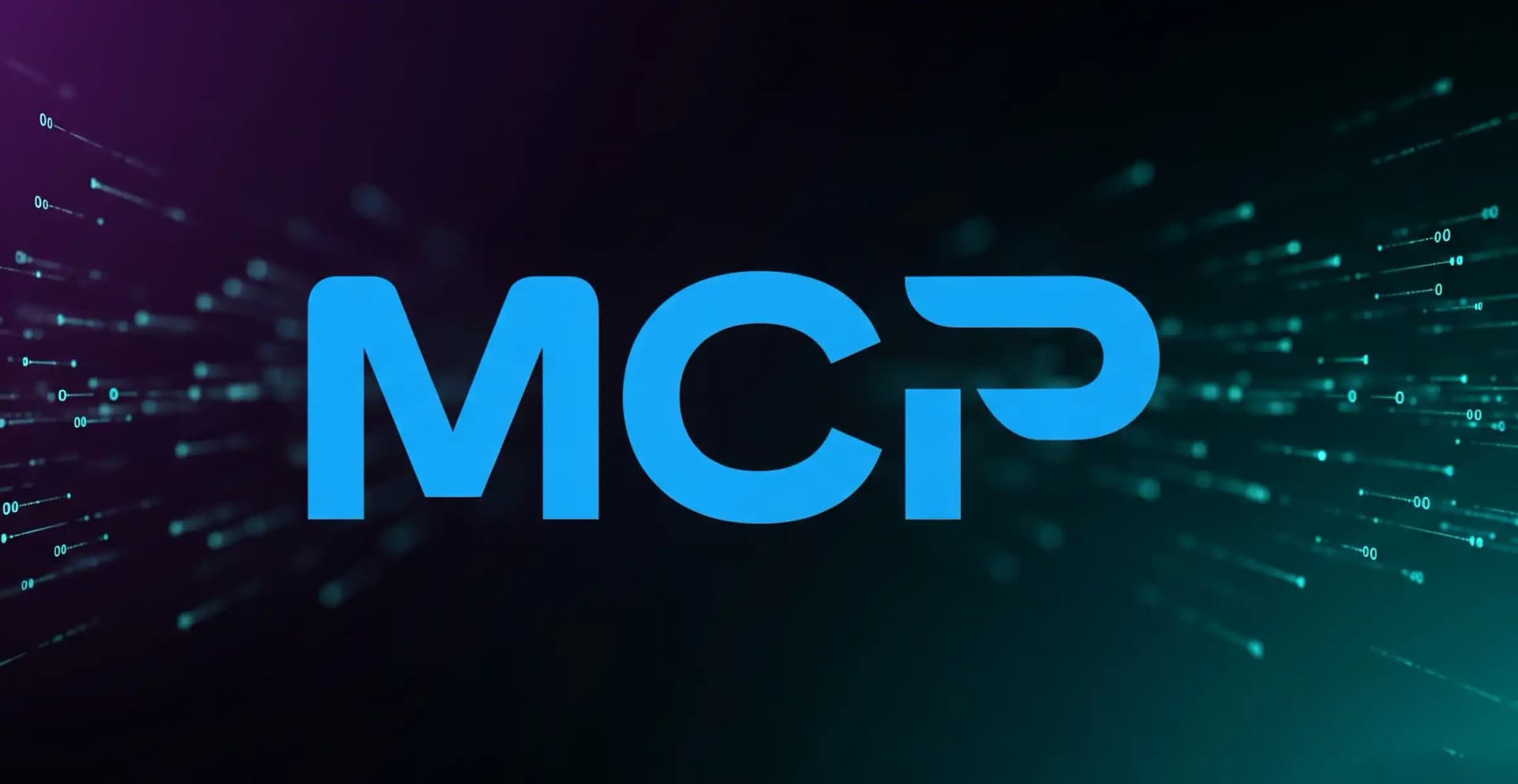You've seen the demos. The flashy AI that promises to book your flights, manage your calendar, and basically run your life. You’ve experienced that initial "wow" moment.
But then, the disappointment sets in.
When you try to connect it to your own apps, you hit a wall. It's a tangled mess of APIs, custom code, and endless documentation that makes you want to throw your laptop out the window. You're left thinking, "Why is this so damn hard? Is this AI thing just a gimmick?"
The problem isn't the AI's intelligence. It's a communication problem. The AI is a genius who speaks every language but has no hands to interact with the world.
What if there was a universal translator? A simple, standardised way for any AI model to talk to any application, without the headaches? What if we could give the genius AI a set of hands?
Meet MCP: The Model Context Protocol.
It’s the missing piece of the puzzle that’s about to make AI actually useful for everyone, moving it from a novelty chatbot to a capable agent that gets things done.
If you're curious how MCP connects with the next layer of intelligent communication between AI systems, check out our deep dive on Agent-to-Agent (A2A) Protocol Explained — it explores how agents can coordinate and share context seamlessly.
Understanding the Model Context Protocol (MCP)
The model context protocol isn’t just another tech buzzword. It’s a structured language that lets AI tools, applications, and services “speak” to each other. Instead of relying on manual integrations or scattered API docs, MCP defines how AI should understand a tool’s purpose, actions, parameters, and authentication.
This means an AI agent doesn’t just guess—it follows a structured guide that tells it exactly how to perform real-world tasks. That clarity is what makes MCP a breakthrough for practical AI adoption.
So, what exactly is this MCP thing?
Forget the technical jargon for a second. Let's understand with an analogy.
Right now, asking an AI to use a new app is like giving a brilliant, Michelin-starred chef a car and telling them to go cook a meal in a foreign country. They're going to crash. They have no map, no understanding of the road signs, no idea where the grocery stores are, what ingredients are available, or how the local ovens work. The chef's culinary genius is useless.
MCP is the universal GPS, rulebook, dashboard, and local guide for that chef.
It’s a simple, standardised format that tells an AI model everything it needs to know to use a tool (an app, a service, a website) via its API:
- What the tool is and why it exists: “This is a flight booking tool for finding the cheapest international flights.”
- What actions it can perform: “You can search for flights, book a specific flight, and check a booking status.”
- What parameters are required: “To search for a flight, provide departure city, arrival city, and date. Airline is optional.”
- How to authenticate securely: The MCP also specifies how AI agents can request permission safely.
What Is mcp_version in MCP Files?
When you read a real MCP file, one of the first fields you’ll see is mcp_version. This field specifies which version of the protocol the file follows. Think of it like version control for AI compatibility—just like web browsers follow HTML versions, AI agents follow the mcp_version to understand tool definitions correctly.
{
"mcp_version": "1.0",
"info": {
"title": "Simple Weather",
"description": "Get current weather and a 5-day forecast.",
"protocol": "https://api.simpleweather.com"
}
}
Why does this matter? As MCP evolves, more capabilities will be added. The mcp_version helps AI agents automatically choose the right parsing method—ensuring forward compatibility as the AI ecosystem grows.
Isn't this just another API?
That's a common question, but it's like saying a recipe is the same thing as a grocery store.
- API = grocery store → chaotic inventory, no instructions.
- MCP = recipe → tells the AI exactly what to do and how.
APIs are built for developers. MCPs are built for AI agents.
How does MCP actually work?
It’s just a structured JSON file stored on a server — that’s all. No complex servers, no heavy frameworks.
{
"mcp_version": "1.0",
"info": { ... },
"paths": { ... },
"authentication": { ... }
}
An AI can simply fetch this file and immediately understand how to use a service—without reading a single line of API documentation.
Why is MCP getting so much hype?
Because it solves the biggest blocker in AI today: **usability at scale**. It transforms AI from a chatbot into an autonomous task executor. That's the shift from conversation → action.
The Future Is Autonomous
As MCP becomes the standard, AI will discover tools, rank them, evaluate cost & reliability, and choose the best tool—just like a search engine does for web pages today.
MCP is building the **internet of actions**—and the AI era will run on it.
Your Action Plan
- Explore public MCP repositories on GitHub.
- Find a daily task you want AI to automate → write steps.
- If your product has an API — build its MCP NOW.
This isn't a trend. It's infrastructure. The age of autonomous AI has begun — and it runs on MCP.
